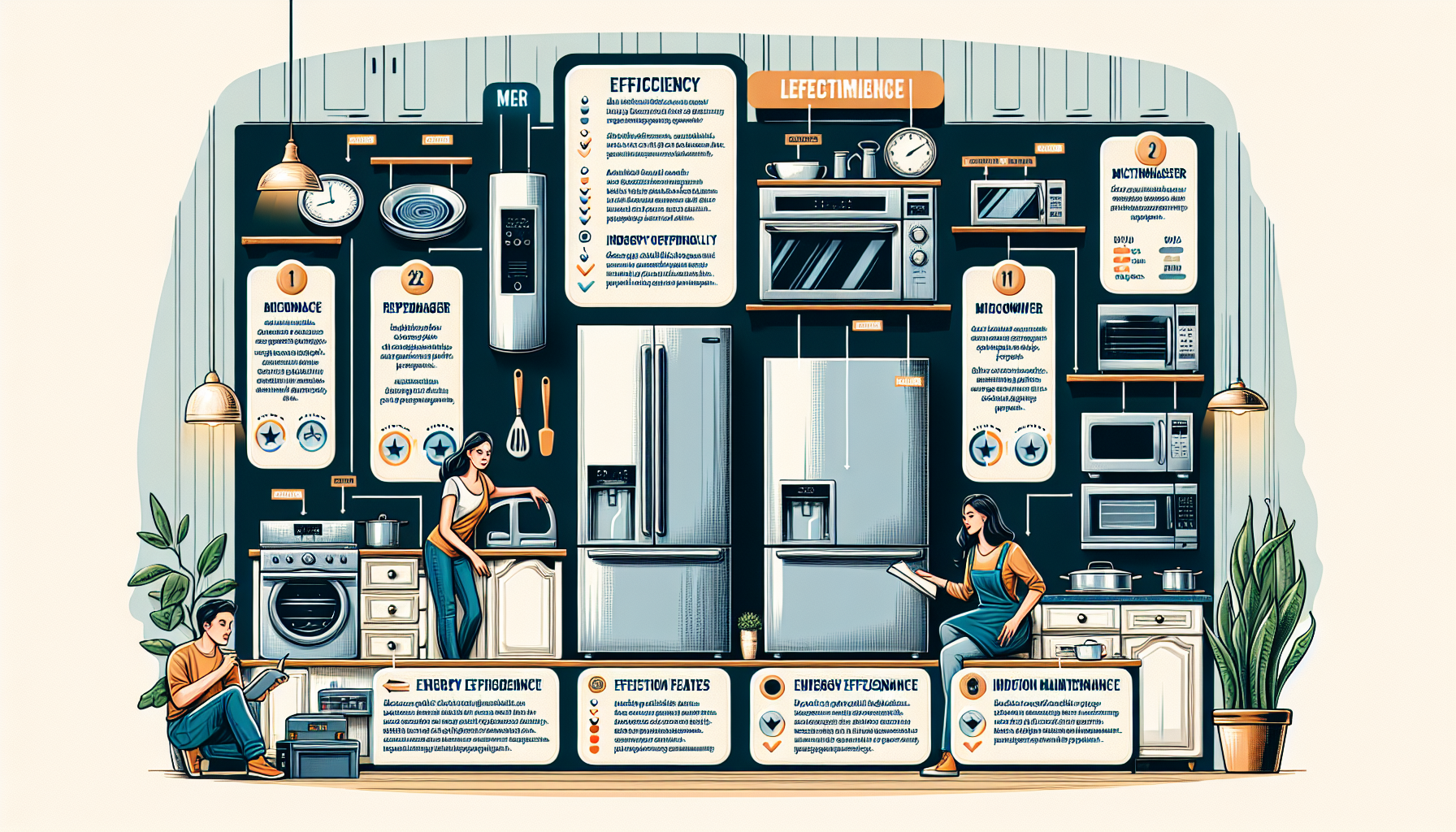
Before you dive into the world of kitchen appliances, it’s crucial to assess your kitchen needs. This means considering the size of your kitchen, your cooking habits, dietary preferences, and lifestyle. For instance, a food processor might be essential for someone who enjoys making sauces and dips from scratch, while a large double-door fridge may be indispensable for a family that cooks often and stores bulk groceries.
Prioritize Quality Over PriceIt may be tempting to cut corners and save money by opting for cheaper appliances, but this can be a false economy. High-quality kitchen appliances generally offer better performance, greater durability, and more consistent results. They are also more likely to have longer warranties and be supported by better customer service. Think of these appliances as an investment in your everyday comfort and long-term savings through fewer repairs and replacements.
Energy Efficiency MattersSelecting energy-efficient appliances is not only good for the environment but also for your utility bills. When shopping, look for the Energy Star label or other certification that indicates the appliance meets or exceeds energy efficiency standards. While these models may sometimes have a higher initial cost, the savings in energy bills will make up for it over the lifetime of the appliance.
Ease of Use and MaintenanceConsider how easy an appliance is to use and maintain. Does it have intuitive controls? Is it easy to clean? Complex machines with difficult-to-reach components can become a nightmare to maintain. Stainless steel surfaces, for example, may look sleek but are prone to smudging and may require regular polishing. User-friendly appliances are more likely to be used to their full potential and maintained properly, enhancing their longevity.
Check Reviews and ComparisonsBefore making a purchase, take the time to read reviews and comparisons from other consumers and reputable sources. Reviews can provide insight into the reliability and performance of an appliance over time, which can be different from the initial impressions in-store. Be mindful of patterns in reviews; one bad review could be an outlier, but several might indicate an issue with the appliance.
Professional InstallationSome appliances will require professional installation, especially those that are built into your kitchen or need to be connected to gas or water lines. Ensure that you use a certified professional for these tasks to avoid safety hazards, maintain your warranty, and assure proper operation. This, in turn, can contribute to the longevity of the appliance.
Follow Manufacturer’s InstructionsOnce you’ve made your selections, it’s essential to read and follow the manufacturer’s instructions for use and care. Proper operation can prevent unnecessary stress on components, and regular cleaning as per the guidelines can prevent wear and tear. Many manufacturers also suggest routine maintenance checks, which can help catch issues before they lead to major problems.
Plan for the FutureWhen choosing kitchen appliances, think about not only your current needs but also how they might change in the future. If you’re planning to start a family or anticipate more frequent entertaining, you may want to opt for appliances that can handle increased demand. Additionally, consider the design and whether it will still suit your kitchen if you decide to remodel or update the space.
By taking the time to understand your needs, prioritize quality and efficiency, read reviews, and follow proper use and maintenance guidelines, you can make informed decisions on kitchen appliances that will operate effectively and last for many years to come.







